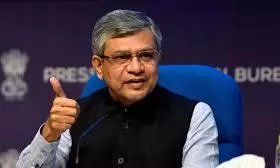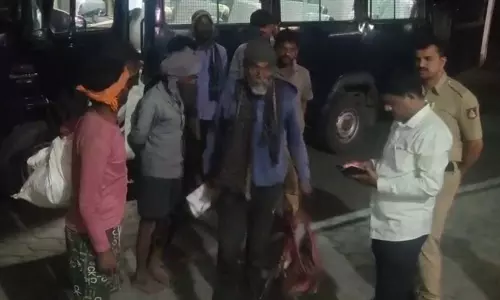
Railway projects in Northeast advancing rapidly despite challenging terrain: Ashwini Vaishnaw
text_fieldsUnion Railway Minister Ashwini Vaishnaw has stated that railway projects in the Northeast region are progressing at a steady pace despite the geographical challenges of the area.
He emphasised that the Indian Railways is working round the clock to ensure timely completion of various projects.
Speaking at a virtual press conference, Vaishnaw highlighted that for the second consecutive year, the Union Budget has allocated over Rs 2.65 lakh crore for railway development. This significant investment reflects the government’s commitment to enhancing railway infrastructure across the country, including the Northeast.
Since 2014, a total of 1,824 km of new railway tracks have been laid in the Northeast - exceeding the entire railway network of Sri Lanka. In addition, 478 new flyovers and underpasses have been constructed in the region since the first Narendra Modi-led government came to power.
The Indian Railways is also prioritising safety and modernisation, with 1,189 route kilometers under the Northeast Frontier Railway (NFR) set to be equipped with ‘Kavach’ - an advanced safety system.
As part of efforts to improve travel speed, safety, and comfort, the government has announced the introduction of 200 new Vande Bharat trains, 100 Amrit Bharat trains, and 50 Namo Bharat rapid rail services.
Additionally, 92 railway stations under the NFR jurisdiction will undergo transformation under the ‘Amrit Bharat Stations’ scheme, enhancing passenger experience and modernising facilities.
Railway officials confirmed that the electrification of all tracks under NFR will be completed by December 2025, ensuring greater efficiency and environmental sustainability. Furthermore, the Bhairabi-Sairang railway project in Mizoram is expected to be completed by July 2025, marking a major step in improving connectivity in the state.
The budgetary allocation for railway projects in the Northeast for 2025-26 stands at ₹10,440 crore, which is over five times higher than the average annual allocation of ₹2,122 crore during 2009-14.
This increased funding will accelerate work in several critical areas, including new railway lines and track doubling, track renewal projects, road safety and bridge improvements, signaling upgrades and workshop modernisation, and enhanced passenger amenities.



































